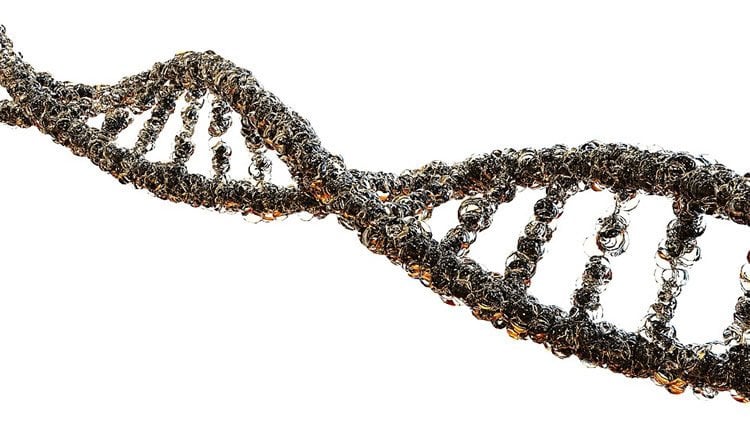Summary: Resilient memory performance during aging may be inherited, researchers say.
Source: Translational Genomics Research Institute.
All humans experience some cognitive decline as they age. But how is it that some people in their 80s and beyond still have memory capacity of those 30 or more years younger?
Recent studies have shown that these SuperAgers have less evidence of brain atrophy, have thicker parts of the brain related to memory, and lower prevalence of the pathological changes associated with Alzheimer’s disease.
Now, a study by the Translational Genomics Research Institute (TGen), an affiliate of City of Hope, and Northwestern University Feinberg School of Medicine suggests that having resilient memory performance during aging could be inherited, and that a particular gene might be associated with SuperAgers.
The study results, published today in the journal Frontiers in Aging Neuroscience, suggest that therapies targeting the MAP2K3 gene could reduce age-related memory decline, and perhaps the threat of memory loss posed by Alzheimer’s disease.
“This study suggests that SuperAgers may have a genetic ‘leg up’ on the normal aging population — they may have higher resistance to age-related cognitive changes — and also that this might highlight a new way to enhance memory performance,” said Dr. Matt Huentelman, Ph.D., TGen Professor of Neurogenomics, and the study’s lead author.
Researchers sequenced the genomes of 56 SuperAgers in the hunt for genetic variations. They defined SuperAgers as those individuals 80 years or older who scored at or above average normative values for adults age 50-65 in episodic memory tests, and at least average-for-age in other cognitive tests.

They compared these to a control group of 22 cognitively average individuals, those who scored within the average-for-age on episodic memory and other cognitive tests, as well as with a large group of individuals from the general population.
They found that the SuperAgers were enriched for genetic changes in the MAP2K3 gene compared to the two control groups.
“Based on our findings, we postulate MAP2K3 inhibitors may represent a novel therapeutic strategy for enhanced cognition and resistance to Alzheimer’s disease”, said Dr. Emily J. Rogalski, Ph.D., Associate Professor at the Mesulam Cognitive Neurology and Alzheimer’s Disease Center at Northwestern’s Feinberg School of Medicine, and the study’s senior author. “Replication of the finding and mechanistic studies are important next steps.”
Funding: This study — Associations of MAP2K3 gene variants with superior memory in SuperAgers — was funded in part by the National Institutes of Health, the National Institute on Aging (grant numbers R01 AG045571 and P30 AG13854), and the Davee Foundation. Tissue samples were provided by the National Cell Repository for Alzheimer’s Disease. Data collection and sharing was provided by the Alzheimer’s Disease Neuroimaging Initiative.
Source: Steve Yozwiak – Translational Genomics Research Institute
Publisher: Organized by NeuroscienceNews.com.
Image Source: NeuroscienceNews.com image is credited to Nick Romanenko / Translational Genomics Research Institute.
Original Research: Open access research for “Associations of MAP2K3 Gene Variants With Superior Memory in SuperAgers” by Matthew J. Huentelman, Ignazio S. Piras, Ashley L. Siniard, Matthew D. De Both, Ryan F. Richholt, Chris D. Balak, Pouya Jamshidi, Eileen H. Bigio, Sandra Weintraub, Emmaleigh T. Loyer, M.-Marsel Mesulam, Changiz Geula and Emily J. Rogalski for The Alzheimer’s Disease Neuroimaging Initiative in Frontiers in Aging Neuroscience. Published May 29 2018.
doi:10.3389/fnagi.2018.00155
[cbtabs][cbtab title=”MLA”]Translational Genomics Research Institute “Super-Ager Study Offers Genetic Clues to Performance.” NeuroscienceNews. NeuroscienceNews, 30 May 2018.
<https://neurosciencenews.com/super-ager-performance-genetics-9185/>.[/cbtab][cbtab title=”APA”]Translational Genomics Research Institute (2018, May 30). Super-Ager Study Offers Genetic Clues to Performance. NeuroscienceNews. Retrieved May 30, 2018 from https://neurosciencenews.com/super-ager-performance-genetics-9185/[/cbtab][cbtab title=”Chicago”]Translational Genomics Research Institute “Super-Ager Study Offers Genetic Clues to Performance.” https://neurosciencenews.com/super-ager-performance-genetics-9185/ (accessed May 30, 2018).[/cbtab][/cbtabs]
Abstract
Associations of MAP2K3 Gene Variants With Superior Memory in SuperAgers
Introduction: SuperAgers are adults age 80+ with episodic memory performance that is at least as good as that of average middle-aged adults. Understanding the biological determinants of SuperAging may have relevance to preventing age-related cognitive decline and dementia. This study aimed to identify associations between genetic variations and the SuperAging phenotype using Whole Exome Sequencing (WES).
Methods: Sequence Kernel Association Combined (SKAT-C) test was conducted at the gene level including both rare and common variants in 56 SuperAgers and 22 cognitively-average controls from the Alzheimer’s disease Neuroimaging Initiative (ADNI).
Results: The SuperAging phenotype was associated with variants in the Mitogen-Activated Protein Kinase Kinase 3 (MAP2K3) gene. Three single nucleotide polymorphisms (SNPs) contributed to the significance (rs2363221 [intron 1], rs2230435 [exon 5], rs736103 [intron 7]).
Conclusions: MAP2K3 resides in a biological pathway linked to memory. It is in a signaling cascade associated with beta-amyloid mediated apoptosis and has enriched expression in microglia. This preliminary work suggests MAP2K3 may represent a novel therapeutic target for age-related memory decline and perhaps Alzheimer’s disease (AD).






